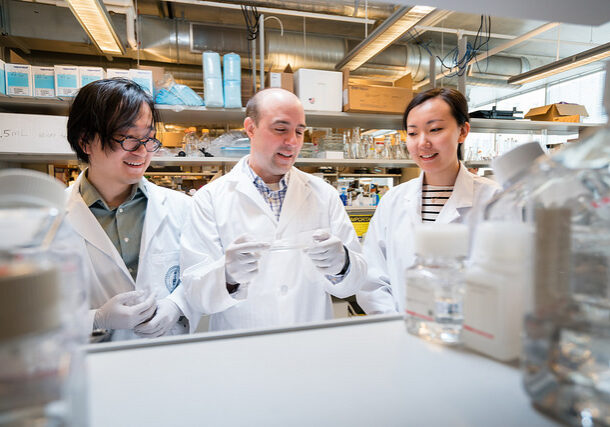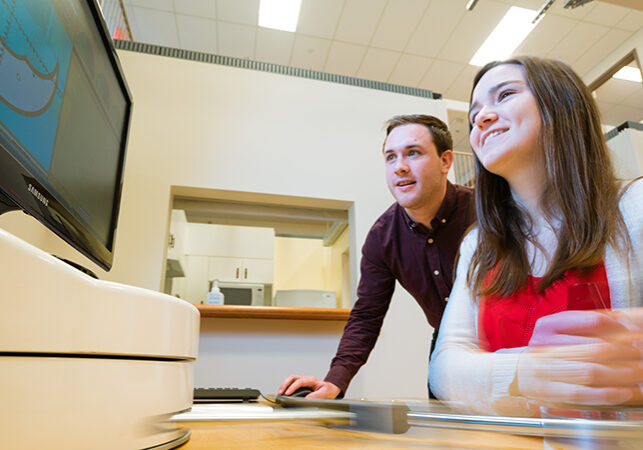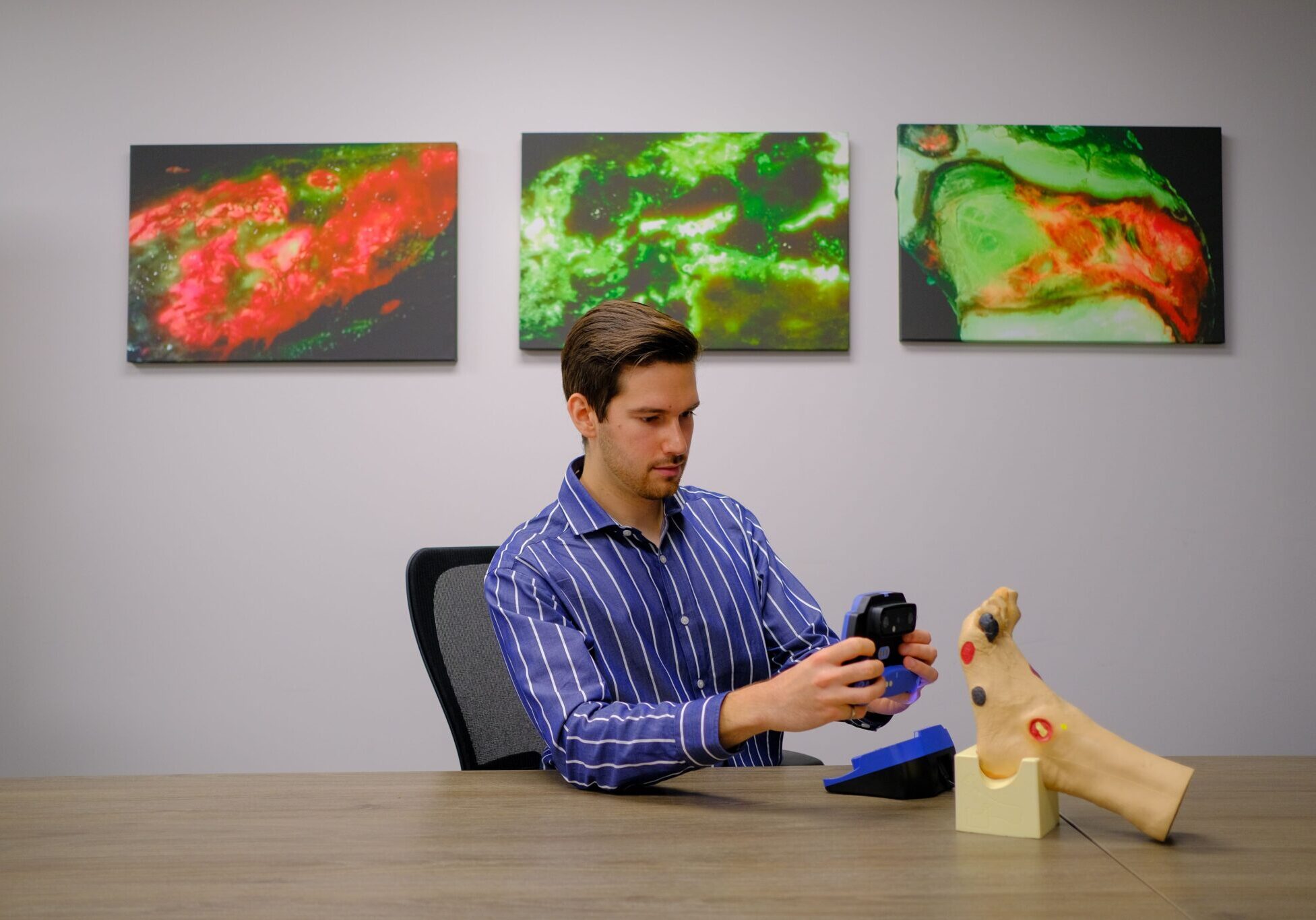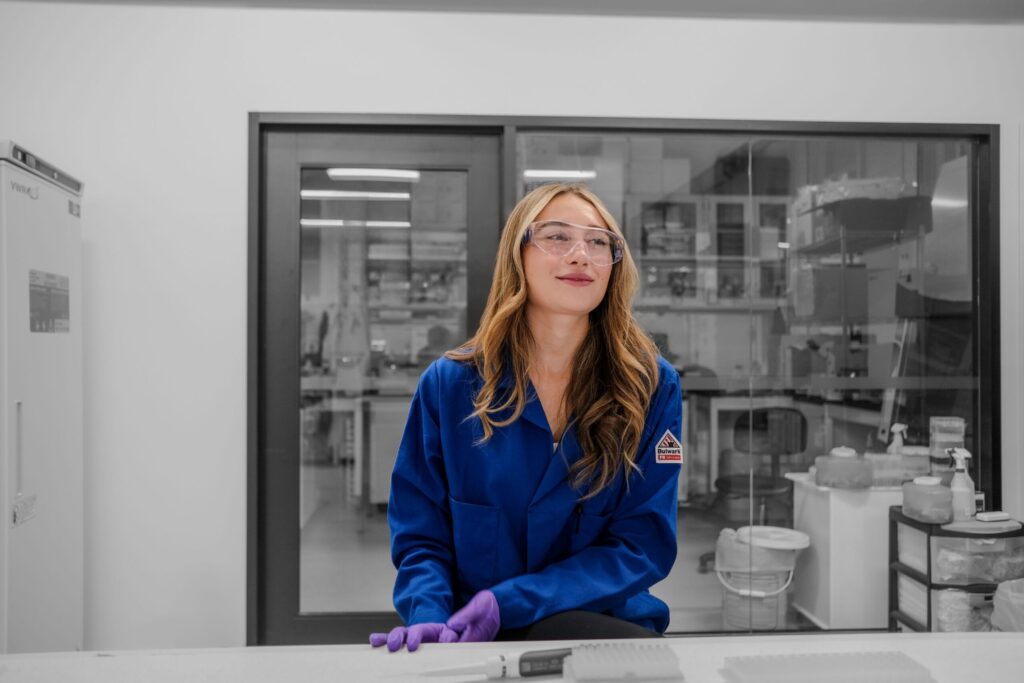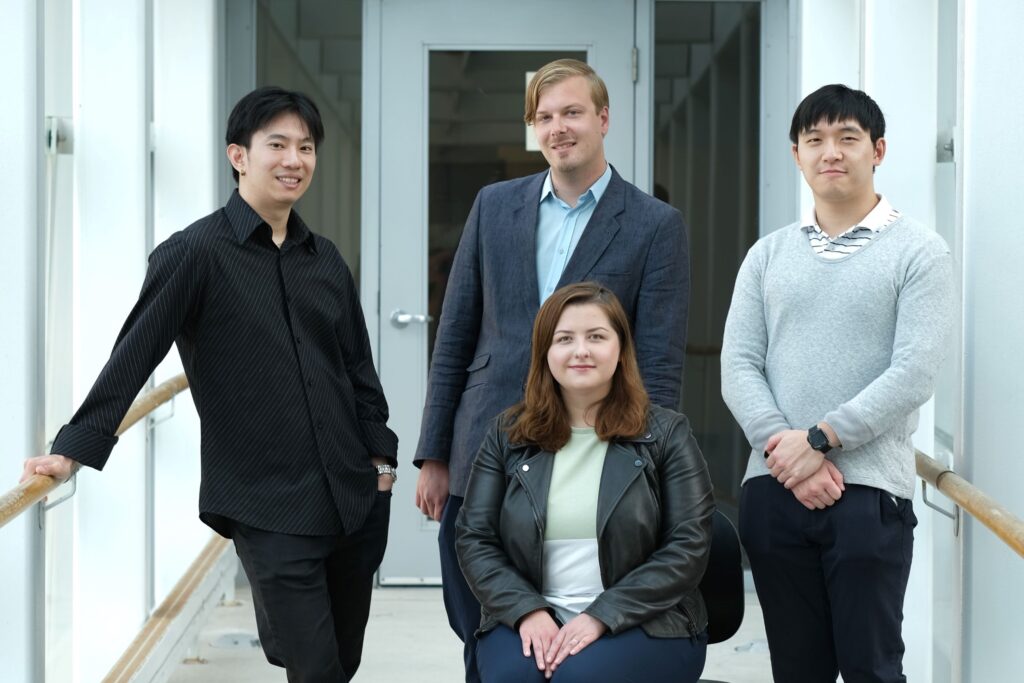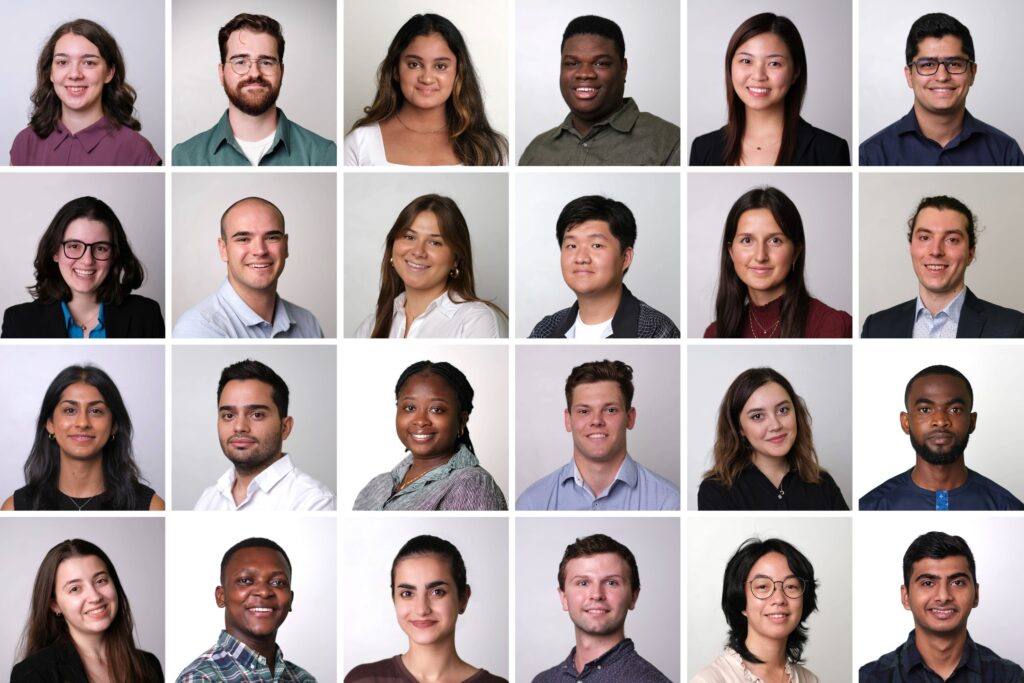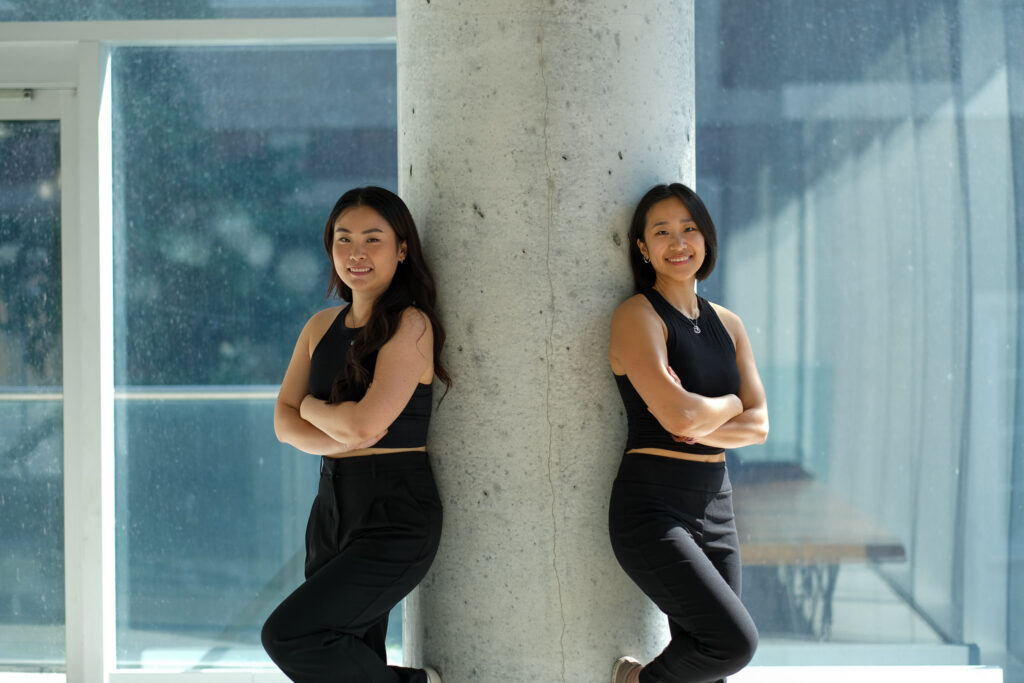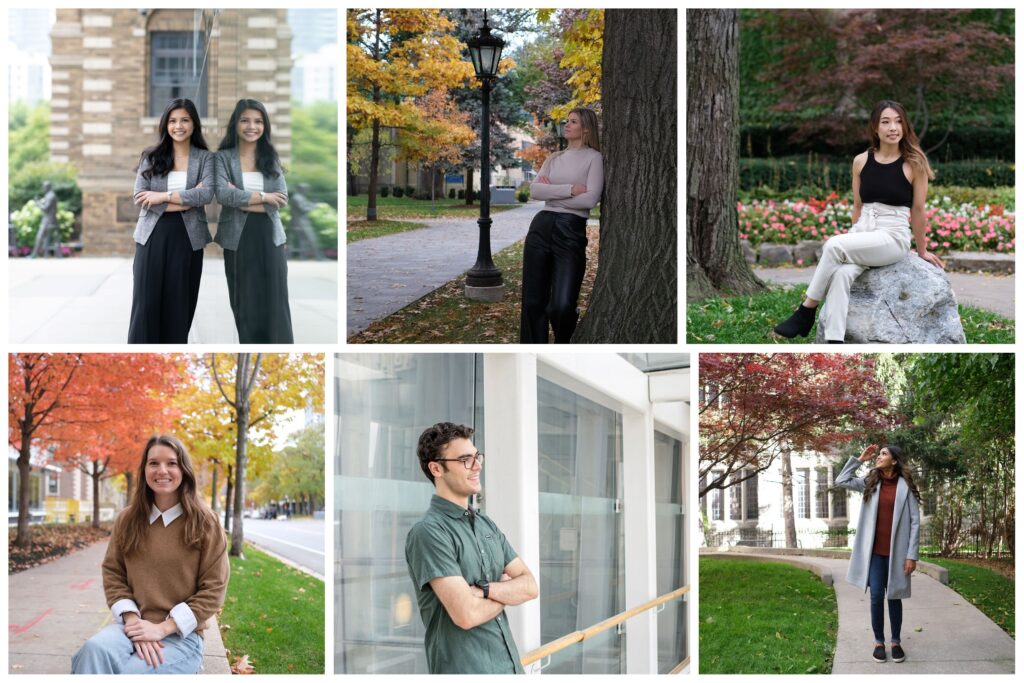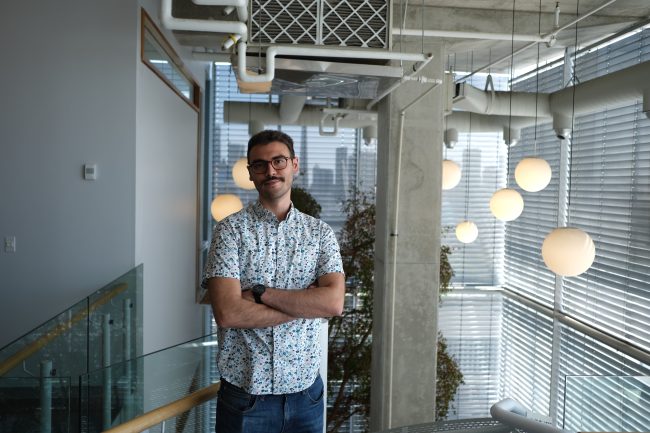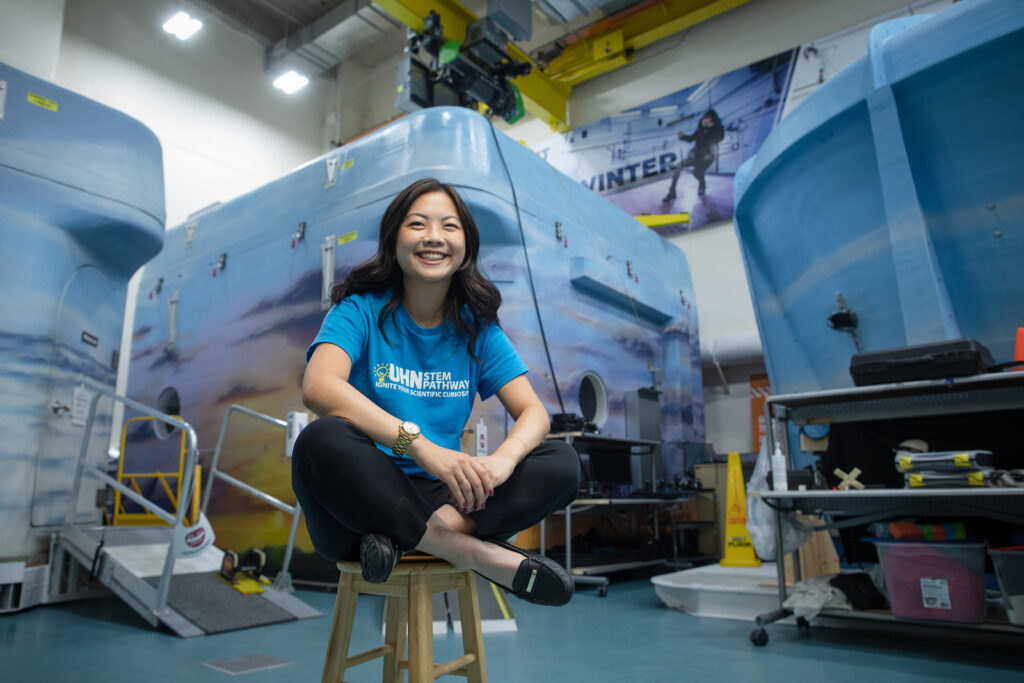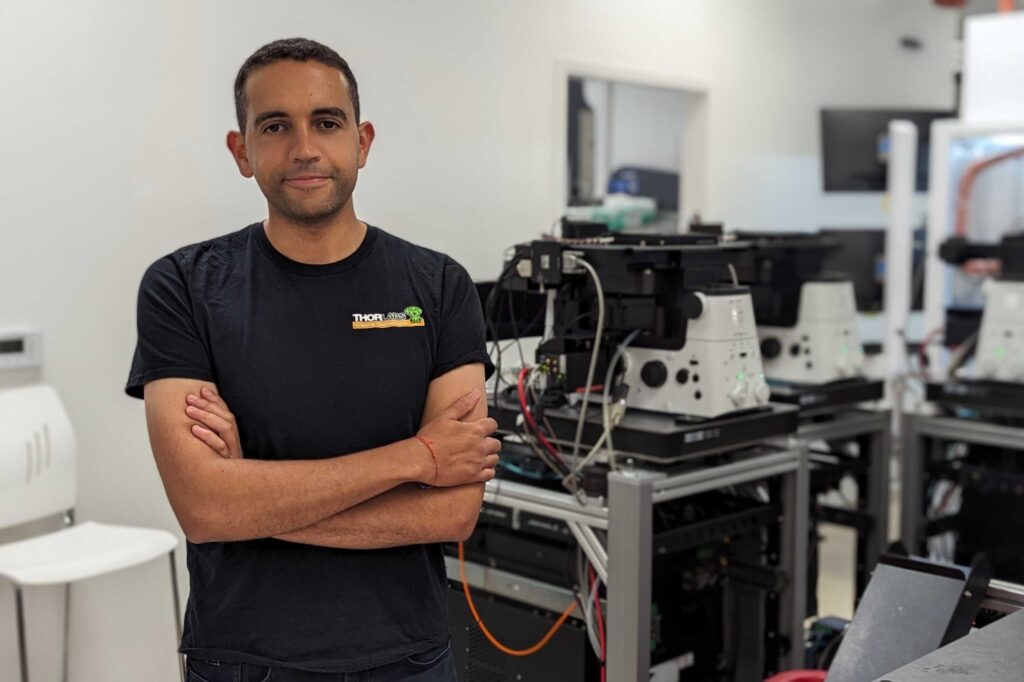Programs Overview
Overview
Are you a prospective student? Here at the Institute of Biomedical Engineering (BME), we connect researchers across the University of Toronto and its partner hospitals to develop innovative solutions to improve human health.
At the Institute of Biomedical Engineering (BME), we have 3 graduate programs and 2 undergraduate programs.
Graduate programs
Doctor of Philosophy
Research degree that exposes candidates to cutting-edge research in a laboratory
Master of Applied Science
Research degree that exposes candidates to cutting-edge research in a laboratory
Master of Engineering
Professional degree that exposes candidates to biomedical device design to commercialization
Graduate programs comparison
| Stream: | Research | Professional |
|---|---|---|
| Program: | PhD / MASc | MEng |
| Focus: | Research intensive training in a laboratory or clinical setting. | Training in biomedical device design, implementation, and commercialization. |
| Career Interests: | Individuals pursuing careers in academia, healthcare, government, or industry, who have a passion for research and development. • Motivated to conduct cutting-edge research • Passionate about academic collaboration and science communication • Keen on becoming key opinion leaders with distinct research specialization | Individuals interested in medical device production from design to implementation in human patients. • Seeking product design knowledge • Interested in learning entrepreneurship fundamentals • Eagar to gain real-world experience in the healthcare sector |
| Degree(s) Required: | Bachelor of Science, Bachelor of Engineering, Master of Applied Science (for PhD only), or Master of Engineering (PhD only). | Bachelor of Engineering or Bachelor of Science. |
| Outcome: | Program graduates excel as leaders in academia, industry, and government agencies across the globe. | Through work-integrated learning, graduates emerge as company founders, technology leaders, and start-up creators in the healthcare sector. |
| Program Length: | approx. 2 years (for MASc) or approx. 4 years (for PhD) | 1 year |
| Funding: | Unit-funded | Self-funded |
| Curricula: | • Coursework • Committee Meetings • Qualifying/Bypass Exam (for PhD) • Thesis • Defense • Final Oral Exam (for PhD) | • Coursework • Practical Experience |
Apply to graduate studies at BME
Undergraduate programs and opportunities
-
Year 1
Engineering Science (EngSci) program students learn fundamentals of different science disciplines and begin team-based design training through praxis courses.
Opportunities:
-
Year 4
Major students may focus on skill advancement and further knowledge and competencies through the completion of specialization courses, thesis, and design/capstone projects.
-
Year 1
Engineering students establish knowledge in math and applied & basic sciences.
-
Year 4
Minor students may focus on skill advancement in one of the three themes (mentioned above) toward becoming a specialist in their respective field.
Read more graduate student news & stories
Meet the 2023 Leadership of Biomedical Engineering Students’ Association
Introducing the Movers and Shakers of the Biomedical Engineering Students’ Association (BESA)! Meet the visionary leaders steering the Biomedical Engineering Students’ Association towards a brighter, healthier future in 2023.
Introducing the 2023 Toronto Biomedical Engineering Conference Chairs: Zi Xuan Zhang and Eileen Zhong
As ToBE embarks on its latest chapter in 2023, we are proud to introduce the leadership duo at the helm of this year’s event: Zi Xuan Zhang and Eileen Zhong.
IBET Momentum Fellow Chantel Briana Campbell fabricates multilayered biomaterials that can help repair damaged hearts, eyes and muscles
Campbell is one of three 2023 recipients of the Indigenous and Black Engineering and Technology (IBET) Momentum Fellowships, along with fellow graduate students Raylene Mitchell (MIE) and LaShawn Murray (MIE). Fellowship recipients receive financial support, mentorship, training and networking opportunities to reduce the systemic barriers for their entry into academia.
Meet five U of T Engineering graduate students awarded 2023 Vanier Scholarships
Stefan Mladjenovic (BME), a 2023 Vanier Scholar, was inspired by his mother’s battle with cancer to research nanomedicine for his PhD. He is one of the five U of T engineering students awarded 2023 Vanier Scholarship.
KITE trainee named UHN stem pathways volunteer of the month
Kaylie Lau has been involved in youth outreach for many years, so when the opportunity arose to become involved with the UHN STEM Pathways program she jumped at the chance.
